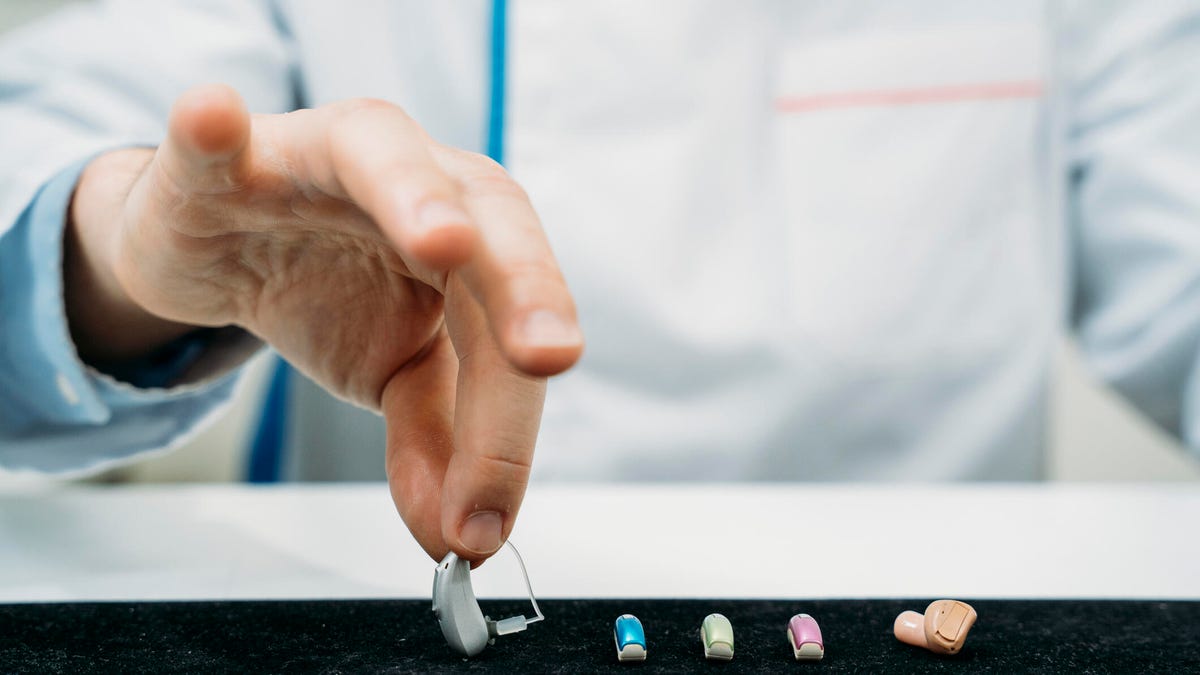Buying an OTC Hearing Device? Opt for a Self-Fitting Hearing Aid
Self-fitting hearing aids could be a reliable choice if you're looking for an over-the-counter hearing device.

OTC hearing aids became widely available in October following a ruling from the FDA.
If you're looking for an inexpensive alternative to prescription hearing aids, which can cost you anywhere from $1,000 to $6,000, over-the-counter hearing aids may be the right option for you.
But before you buy a pair at your local pharmacy or big box store, there are a few things about OTC hearing aids that you should probably know about.
The hearing aid market widened following the US Food and Drug Administration's ruling that made OTC hearing aids available in October 2022. The idea was that these devices, similar in quality to prescription hearing aids, would be cheaper because the middleman (the audiologist fitting the device into your ear) is removed. These OTC devices can, in fact, be cheaper than their prescription hearing aid counterparts.
Finding a high quality device that works for you, however, might pose a challenge with all of the options available. To make it easier for you to decide -- and most important, make a confident buying decision -- consider paying attention to whether an OTC hearing aid is "self-fitting."
For more, here's a comprehensive guide to OTC hearing aids and a value comparison of OTC hearing aids.
What are self-fitting hearing aids?
Available since late 2022, self-fitting hearing aids give you the option to tune the amplification of the device to your personal hearing needs without assistance from an audiologist. You can buy the devices at a store or through an online retailer without the need for a medical exam, prescription or a fitting adjustment by a medical professional.
What makes self-fitting OTC hearing aids different from non-self-fitting OTC devices?
To get approval for OTC sales, manufacturers of self-fitting hearing devices must show the FDA that the device has been tested and is safe for those with mild to moderate hearing loss.
Self-fitting hearing aid packaging must also explain who the device is for and when a user should consider seeing a doctor for hearing loss, as Heidi Godman, the executive editor of Harvard Health Letter, explains.
Non-self-fitting devices sold over the counter need to meet different standards. "Non-self-fitting OTC hearing aids must be registered with the FDA, but device makers are not required to demonstrate that the devices are safe. The registration is essentially a claim that the device meets FDA standards," Godman wrote.
The OTC hearing aid market is only a couple of months old, and because of that, there is "quite limited literature confirming the effectiveness" of these devices, audiologist Karina C. De Sousa said in a recent podcast. So, De Sousa and a team of researchers studied the efficacy of self-fitting OTC hearing aids in comparison to prescription hearing aids in a study recently published in the Journals of the American Medical Association. Their results concluded that self-fitting OTC hearing aids "may be an effective intervention option" for those with mild to moderate hearing loss. They also found that the OTC hearing aids produced similar outcomes to audiologist-fitted hearing aids.
Regardless of the type of hearing aid you choose, it's also important to check in with an audiologist to make sure the device serves your needs and to take account of your hearing issues.
For more, here's why hearing loss is more common than you think and how new technology could help.

